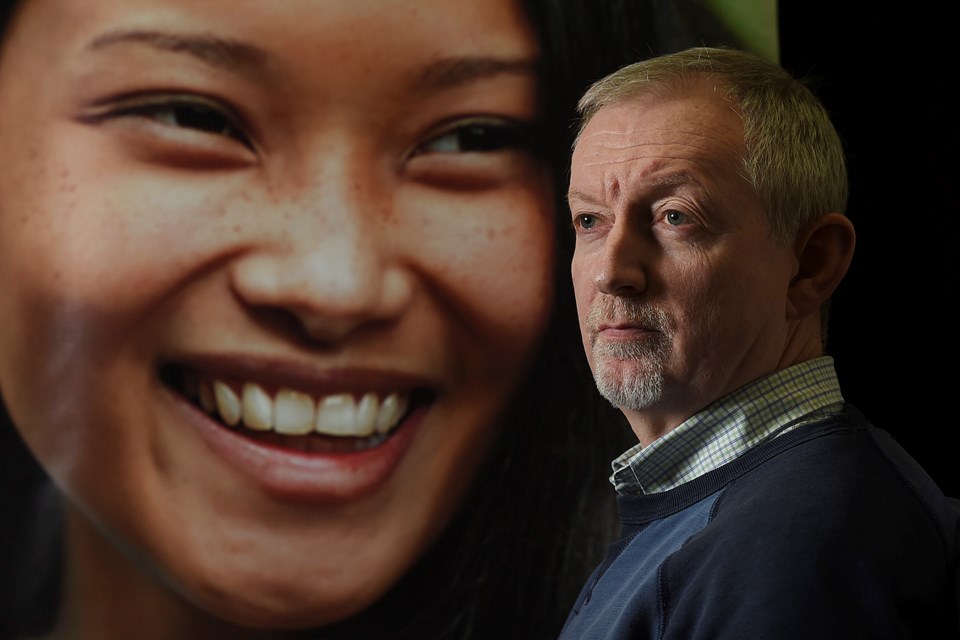While serving as a forensic weapons expert for the RCMP, Brian McConaghy broke a United Nations embargo against Cambodia by smuggling nine tonnes of medical materials into that troubled country. While helping the investigation on the notorious pig farm of Robert Pickton, a bizarre happenstance allowed McConaghy to connect dots that led to the first conviction under Canada’s sex tourism law.
Hearing his stories might make some see a series of spectacular coincidences. McConaghy sees divine intervention.
Born in Belfast, Northern Ireland, McConaghy came to Canada at 15, when his father, a Presbyterian minister, was reassigned to Ottawa.
After university, McConaghy was immediately hired by the RCMP, who sent him to Vancouver for extensive training to become a forensic firearms expert.
“I grew up around weapons, I'm used to them, I know how they work,” he says. “I always laugh about growing up in Belfast … it's kind of in your genes. It's almost instinctive for me, so it was a great career.”
As instinctive as his facility with weapons analysis may have been, the work took a toll on him.
“I was so sick of dead people,” says the blunt ex-Mountie, who retired in 2008 after more than 22 years.
In 1989, he wanted to trade the misery of his daily work for sun and relaxation, so he took a vacation to Southeast Asia. Through one of those series of events that have led to forks in the path of his life, McConaghy ended up on the frontlines of a battle in the ongoing war between Vietnam and the holdouts of Pol Pot’s Khmer Rouge, whose nihilistic communist government of Cambodia had killed an estimated two to three million people and obliterated Cambodian society. McConaghy witnessed some ragged refugees from the Cambodian killing fields and was determined to learn more — and do more.
Returning to Vancouver, he viewed and read everything he could on Cambodia (which, under the Khmer Rouge, was renamed Kampuchea). He saw a documentary in which an 11-month-old girl named Ratanak died because of a U.S.-led embargo that withheld routine medications that would have saved Ratanak’s life.
“I figured, that's it,” he recalls. “I'm going to smuggle two suitcases of medicine into Cambodia in her memory. With the right meds, two suitcases can help 500 lives each, easy, if you've got the right meds.”
He talked to some doctors and word spread. Pharmaceutical firms and hospitals donated heaps of medical equipment and medications. Logistics became an issue.
“I'm sitting in Vancouver [wondering], how do I ship nine tonnes of this stuff? And, more importantly, how do I smuggle it?” he says, adding: “And I'm a member of the RCMP.”
Shipping containers are registered and tracked precisely to prevent the kind of escapade McConaghy was plotting. In yet another incident that he believes owes something to the hand of the unseen, he connected with a man with a shipping background who was then working for a Christian aid agency in Asia.
If McConaghy could get the shipment to Singapore, the man told him, they could have it loaded onto a rusty, decommissioned and unregistered container. From there, it would travel by riverboat up the coast of Malaysia, Thailand, Cambodia and Vietnam, into the Mekong River, back into Cambodia and to the capital city of Phnom Penh. McConaghy met the container in Phnom Penh and was hailed as a hero, something he dismisses with Seinfeldian nonchalance.
“Given that I had broken the embargo, they stuck me on state-run TV with the deputy minister of health for having saved all these lives yada yada yada,” he says. “Problem was, that's not a good way to keep a low profile when you're in the RCMP.”
He wasn’t so warmly welcomed by his superiors back in Canada, but when the embargo was lifted a couple of years later, the RCMP actually gave McConaghy time off to travel to Cambodia annually to pursue his charitable work.
That second job took off when he returned from his smuggling expedition and had money thrown at him by admiring Canadians. He started a charity called Ratanak International, after the girl whose death had so impacted him. The charity set up and still runs orphanages and partners with other agencies in Cambodia to create and operate clinics, schools, hospitals, orphanages and food distribution programs.
There is plenty of woe in the world, but McConaghy’s heart is in Cambodia, he says, because of the unprecedented catastrophe the Khmer Rouge perpetrated on the country.
“It was the imposition of pure communism,” he says. “You weren't allowed to own a spoon. The family was systematically dismantled. All the economy and markets were dismantled. Every single person in the country was removed from their home and sent to the killing fields. The entire country became a concentration camp, deliberately and systematically organized as such.”
The creation of Ratanak International emerged from a series of events that McConaghy insists involve the hand of God.
“From a Christian standpoint, I believe it was God communicating clearly: Don't worry about this stuff, I'm doing the heavy lifting. You just do what you're told,” he says.
Operating a growing international charity while continuing his gruelling day job as an RCMP forensics guy, McConaghy’s path took another turn while he was working on the grisly Pickton case. It would change the focus of his work in Cambodia to the sexual exploitation of young people — and make him even more certain that something divine was guiding his work.
@Pat604Johnson



